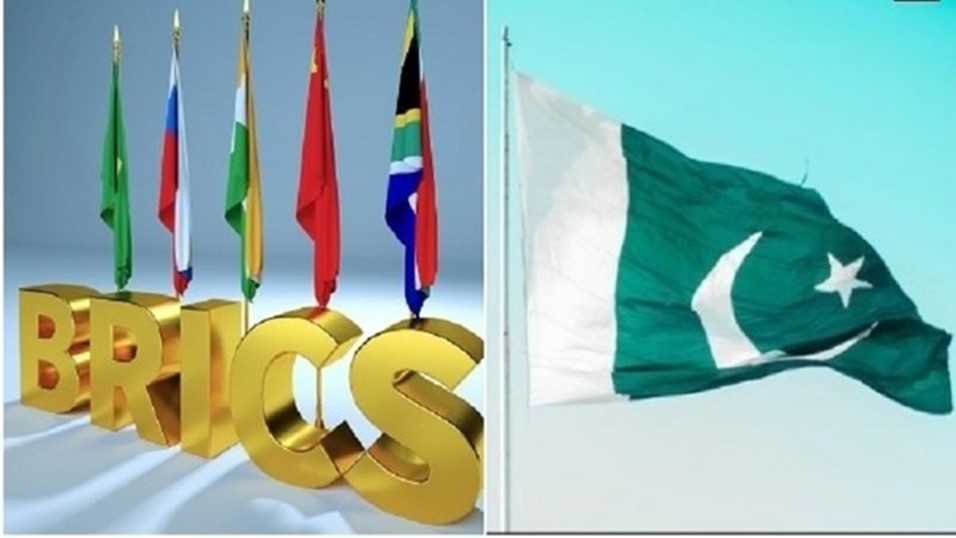Amidst the transitioning geopolitical landscape, BRICS is the most rapidly growing intergovernmental organization. The organization was established in 2009, mainly by Brazil, Russia, India, China, and South Africa, and is now joined by many developing countries.

Shifting Alliances: Pakistan’s Search for New Partners
Pakistan has long been grappling with stagnant economic growth and international support. It has been a significant Cold War ally of the United States. The two countries have also been strong allies in the US-led War on Terror in Afghanistan. Pakistan was considered one of the most significant non-NATO allies of the US during this era. However, the relationship between Pakistan and the United States has always been transactional. Once the storm ends, their relationship returns to square one. The United States has been using Pakistan merely to achieve its strategic ambitions in South Asia. The former has also been intimidating Pakistan through sanctions.
Recently, the United States has imposed sanctions on Chinese suppliers to the latter’s ballistic missile program. The United States has also been one of the obstacles in Pakistan’s efforts to gain financial aid from international monetary institutions. The United States has also been allegedly involved in the grey listing of the country in FATF. Such moves have always increased anti-US sentiment amongst Pakistani citizens and government, resulting in Pakistan’s quest to search for new and reliable allies. Russia and China, the two rising superpowers of the world, are seen in Pakistan as the most reasonable and trustable allies.
Pakistan and China share deep historic ties. Relations between the two countries are celebrated across the border. However, Pakistan and Russia hold bitter historical memories. Russia has played a significant role in establishing Pakistan Steel Mills and Pakistan’s first Nuclear Power plant. Nonetheless, both countries were in opposite blocs during the Cold War. Relations between Pakistan and Russia have seen significant improvement with the turn of the 21st century. Both countries have exchanged official visits during the 2000s. A major break through came between the two countries in 2021 when the Russian Foreign Minister visited Pakistan after 9 years. Next year, Pakistani Prime Minister Imran Khan visited Russia. This development was seen as the most significant move, as this visit took place soon after the start of the Russia-Ukraine conflict.
Imran Khan’s government was also derailed soon after this visit. Pakistan Tehreek E Insaf (PTI), Imran Khan’s political party, maintains that this visit was the main reason behind his ouster from Prime Minister office. They even accuse the United States of conspiring against Imran Khan to set a precedent amongst third-world countries. However, the Pakistani state and establishment seek to establish strong bilateral relations with the regional countries and the rising powers of the world without being part of bloc politics. Russia and China provide the most suitable option to all the developing world as reliable allies. Moreover, they pursue a policy of non-coercion in domestic issues of their allies.
Both these countries play a leading role in the BRICS. Pakistan, a country grappling with stagnant economic growth and diplomatic isolation, officially announced the bid for BRICS membership in November last year. Pakistan has long been struggling in all the international forums. India, being the historic rival of Pakistan, could oppose its application for the BRICS organization. However, Russian Deputy Prime Minister Alexei Overchuk’s affirmation to Pakistan that his country will support its bid to join BRICS has raised hopes among Pakistani officials.
BRICS: A New Avenue for Pakistan’s Growth
Pakistan’s BRICS membership will help the country break the shackles of the Western, especially the United States, influence. BRICS, being a true liberal organization, offers the member countries to pursue an independent foreign policy. Moreover, unlike Western institutions, it provides them with an equal opportunity for growth and development. It also provides them an opportunity to establish stronger economic ties with each other. The BRICS also established the New Development Bank (NDB), a multilateral financial institution parallel to the World Bank, in 2014. This institution aims to fill the $1 trillion infrastructure investment gap in the member developing nations. This financial institution can also help Pakistan to strengthen its economy and decrease its dependence on Western financial institutions, leading to a further decline in the US influence in South Asia.
Russia’s support of Pakistan’s bid to join BRICS will encourage other developing countries to apply for the organization’s membership. Moreover, it will also result in expanding Russian influence in South Asia and beyond. This will also increase Russia’s soft power. Russia will gain diplomatic leverage over the United States in Pakistan and South Asia through this move. Moreover, the expanding BRICS membership will further hasten the declining Western-dominated New World Order. Recently, Türkiye has also applied for the BRICS membership. 40 other countries have also shown their interest in joining the organization. This demonstrates that BRICS is soon expected to become the largest and fastest-growing organization and a significant challenge to all the multilateral Western institutions.
Abbas Hashemite – is a political observer and research analyst for regional and global geopolitical issues. He is currently working as an independent researcher and journalist, exclusively for “New Eastern Outlook”
